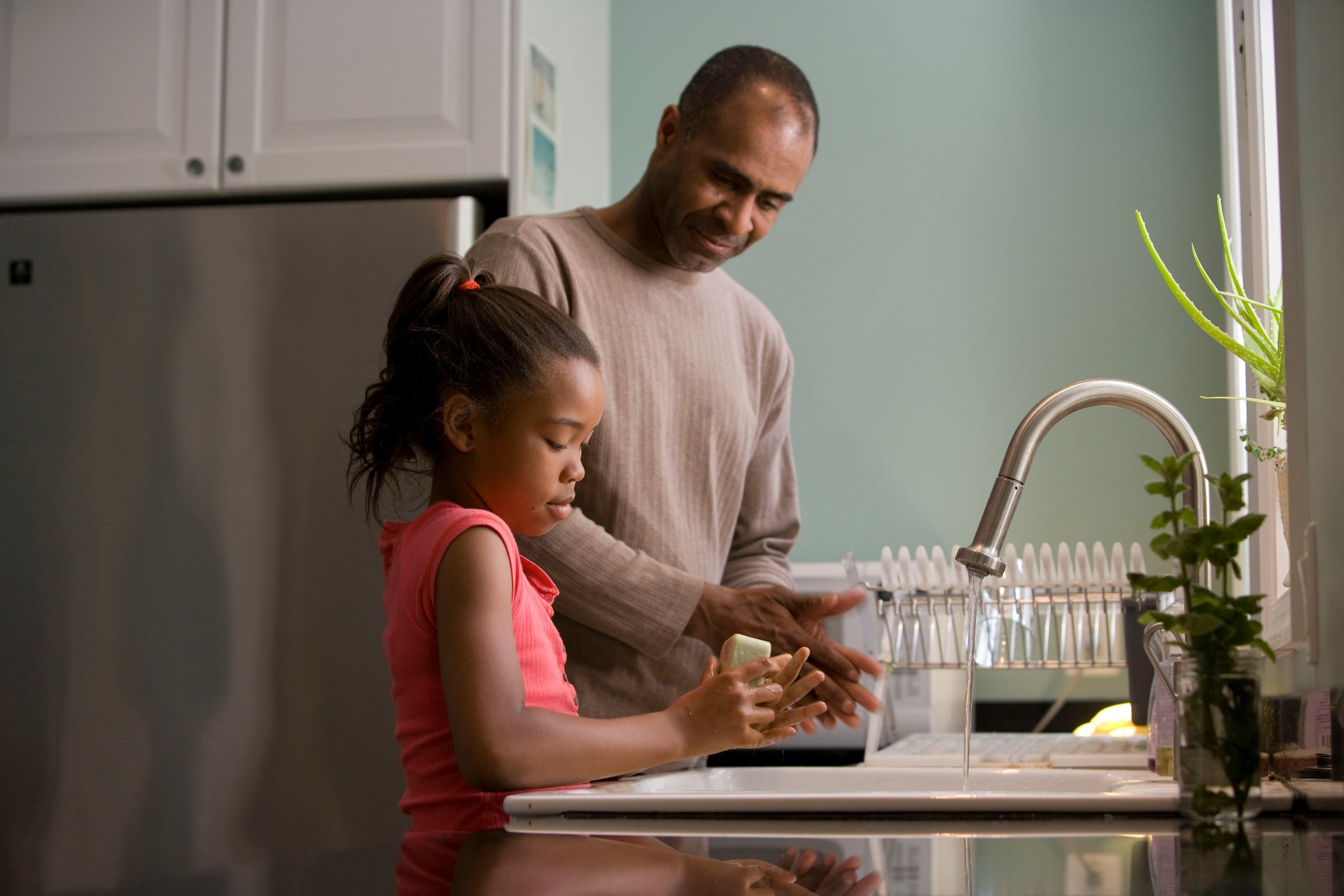Tummy bugs: practical tips
What can you do to help your child when they are vomiting or have diarrhea?
“Stomach flu” (or gastroenteritis) is an incredibly frustrating illness to deal with as a parent. First off, it is super contagious
Second, it can cause major and dramatic symptoms immediately, but for some children it can cause ongoing lingering symptoms for a few weeks afterwards.
Also, be sure to check out the guide page to find step-by-step instructions about handling dehydration in kids. And if you just want a practical list of hacks, check out my instagram post!
Brace yourself, this is a long article.
What is gastroenteritis?
Gastroenteritis means inflammation of the gastrointestinal system. In most cases this is an illness that lasts only a few days, although there are some situations where the inflammation is more long-term.
Gastroenteritis is usually (but not always) caused by viruses. Causes of gastroenteritis include:
Viruses (eg adenovirus, norovirus, rotavirus)
Bacteria (eg salmonella, E.coli)
Parasites (more typical if a history of travel)
Chronic inflammatory conditions (IBD, Crohns)
Symptoms
Symptoms can vary from person-to-person, even within the same family and even with the same viral cause.
They can include:
Abdominal pain
Nausea
Just vomiting
Although gastroenteritis is a common cause of vomiting, it is worth knowing that vomiting in the absence of diarrhea or other symptoms is also often caused by multiple other conditions (eg. migraines, reflux, celiac disease or other chronic conditions). Vomiting exclusively at night/first thing in the morning can also be a sign of more serious intracranial pathology and should be evaluated by your pediatrician right away.
Just diarrhea
A combination of vomiting and diarrhea (sometimes at the same time, sometimes the vomiting comes first)
Depending on the specific viral cause, you can also see fever, rashes, sore throats, congestion and cough, pink-eye and more.
What to do:
There often isn’t much you can do to help except support your child through the illness until their body fights it off.
The Pediatrician Mom Tip: Your biggest goals are to focus on hydration, manage symptoms, and watch for worsening.
In rare cases where fluid losses are hard to keep up with, children may need to be admitted for IV fluids. However, here are some things you can try at home:
Vomiting
For some children, anti-nausea medications like Zofran may be appropriate. These require a prescription, however, and should not be used without oversight by your pediatrician.
The Pediatrician Mom Tip: Sometimes parents are told they can’t get a prescription for medications like Zofran because their child “needs to vomit to get the virus out” - this is not the case. For straightforward gastroenteritis there is no reason your child has to vomit to get through the illness. Ask your pediatrician (and not their staff) if you think Zofran may help your child.
For a more natural remedy, though…
A recent double blind randomized controlled trial showed that ginger may be an effective way to decrease vomiting episodes in kids >1 year old with mild illness. In the trial (PMID: 34018223), ~140 children between the ages of 1-10y were either given a 10mg liquid Ginger supplement every 8 hours, or a placebo. The group receiving Ginger actually had 20% fewer vomiting episodes and recovered more quickly.
Ginger has also been shown in other studies to be effective for pregnancy-related nausea and vomiting, and in chemotherapy patents (PMID: 27053918) and for motion sickness (PMID: 12576305).
Practical ways to try ginger:
Add a small amount of grated fresh ginger, or ginger paste, to warm water with honey (only in kids >1y)
Ginger chews or lollipops (be aware that these can be choking hazards and should only be used for children > 4 years and never in the car!)
Whichever method you use, remember ginger is potent: start low, and go slow.
The Pediatrician Mom Tip: Ginger ale doesn’t have much ginger in it so its not a great option
Diarrhea
Anti-diarrheal or anti-motility medications are not recommended for children because of the lack of clear data supporting efficacy. They can cause side effects, such as drowsiness, ileus (stopping gut motility completely… which can cause obstruction), nausea and more. Unfortunately, the best way to manage diarrhea is to support your child through it - and wait it out. If diarrhea is bloody, clay-colored, or ongoing for longer than 7-10 days, it is worth touching base with your pediatrician.
What about probiotics?
Some data does suggest that probiotics can improve the symptoms of viral gastroenteritis, including the duration of diarrhea and need for hospitalization. But the difference is honestly tiny — only a few hours. I am not convinced it is worth it (PMID: 32297578).
Dehydration
This is critical and often the reason kids end up in the ER. Focus on fluid intake and not on solid food intake. Knowing how to figure out if your child is dehydrated is essential. Click here for more.
Clear liquids are a good first step because they are easier to digest. The main exception here is breastmilk. For infants on formula, oral rehydration solutions are a reasonable option but switch back to formula within 24h.
The Pediatrician Mom Tip: Consider using half-strength apple juice if your child doesn’t like pedialyte. At least one clinical trial showed that it is as effective as other oral rehydration solutions for mild gastroenteritis (PMID: 27131100)
See this post for the more on options to use for hydration or if you want a free download with step-by-step instructions that you can print out and stick in your medicine cabinet, get the guide.
Diaper rash
Good diaper skincare is often overlooked when discussing gastroenteritis. Frequent BMs result in skin breakdown and can cause a lot of pain for your baby.
Change their diaper frequently, and avoid wipes if you can (wash with soap and water). The advice to go diaper free/allow to air dry can be particularly logistically challenging if your child has a diarrheal illness. If the skin is not too broken down, Mylanta (an antacid) can be dabbed over the diaper area to neutralize bile acids in the stool and help diminish the impact of the acidity on the skin. Always discuss this with your pediatrician first.
And always, always, always use a nice thick layer of diaper ointment (like you’re frosting a cupcake). For more protips, click here.
Timeline:
In general, although symptoms can feel endless, gastroenteritis is a short-lived illness. The exact length may depend on the specific viral cause, but usually vomiting improves within 1-4 days. Diarrhea may linger for longer, but most healthy adults and children will recover fully within 5-10 days.
What to expect afterwards
Most children recover their appetite and their weight quite quickly. But for some, we do see a lingering lactose intolerance for several weeks afterwards, so do not be surprised if you notice an intermittent recurrence of symptoms or even just complaints of abdominal pain after your child eats dairy.
Testing:
Although testing can be done on stool or other fluids, this is not often needed, because it would not change management. One exception might be if a child is being admitted and a hospital needs to know what precautions to use for staffing, or if symptoms are ongoing or atypical.
Transmission:
How long you are contagious - and how transmission occurs - depends on the actual cause of the gastroenteritis. Norovirus and Rotavirus, for example, can be contagious for several days and up to a few weeks after symptoms resolve. Infection can spread via:
direct contact (sharing food, utensils, etc)
consuming contaminated food or drink
fecal-oral transmission (eg after diaper changes)
contact with contaminated surfaces
Preventing snowballing:
The Pediatrician Mom Tip: Norovirus can live on surfaces for months after an infection. It is also quite resistant to heat (can survive temps as high as 145°F)
Unfortunately, gastroenteritis is often very contagious. Some basic things you can do to prevent transmission within your household are:
Effective, frequent hand washing with soap and water for at least 20 seconds
Make sure you wash hands after diaper changes!
Hand sanitizers are ok in a pinch but they don’t work as well as good old-fashioned soap and water
Wiping down frequently touched surfaces such as door-knobs, counters, etc
Wipe them with paper towels and then disinfect using a bleach-based household cleaner. Leave the disinfectant on the surface for at least 5 minutes before washing off with soap and hot water.
For toys: either run them through the sanicycle in your dishwasher, or if they are more delicate, wash with soap and water or a cleaning product that contains bleach.
Be careful with food preparation
Ideally, you should avoid preparing food for others while symptomatic and for 2 days afterwards. As a parent, I know this is often impossible, so if it is unavoidable, make sure you’re washing hands well.
All produce should be washed carefully and cooked before preparation.
Laundry
Wash soiled laundry with detergent and hot water for the maximum cycle length and then dry using high heat.
When to call the pediatrician
This is not a comprehensive list. In general, always err on the side of calling your pediatrician if you have any concerns about your child. There is a lot to be said for a parent’s gut instinct, and I promise: your pediatrician would rather you called!
If your child is not improving within a few days, or if they seem to be getting worse, call your pediatrician. Other concerning symptoms include:
Bloody vomit or diarrhea
Green vomit
Ongoing vomiting for > 24h
Inability to keep down fluids
Dehydration — see my prior posts for signs to look for.
Change in mental status (change in alertness, severe discomfort, excessive fatigue, fussiness)
Infants under 6mo
Anything else tickling your spidey sense!!
FAQs
Can I rehydrate with water or cows milk?
Plain water has no electrolytes and coupled with dehydration where electrolytes are being lost from the body, the situation can quickly lead to severe imbalances.
Cows milk is harder to digest than clear liquids, so it is NOT recommended for oral rehydration. In a child with gastroenteritis, you can also see a transient lactose intolerance, so this may worsen their symptoms.
See this post for the best options to use for hydration. And check out my guide which goes through step-by-step instructions for how to hydrate and how much to give!
Should I try the BRAT diet?
There is actually no evidence to support the BRAT diet. Focus on maintaining fluid intake, and if your child is wanting food, the concept of using bland food is reasonable, but you certainly don’t need to stick to the BRAT foods.
Does my child need to stay home from school?
Yes. Many schools have policies on gastrointestinal illness, but in general we recommend keeping children home until they are asymptomatic and ideally for 1-2 days beyond that.
How much fluid intake does my child need if they’re sick?
I just put together a guide that answers this!









